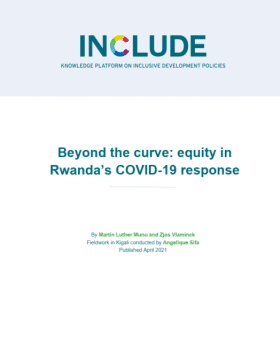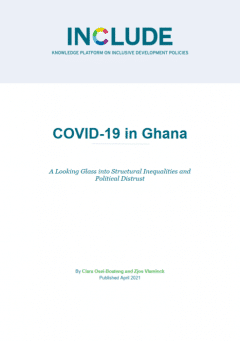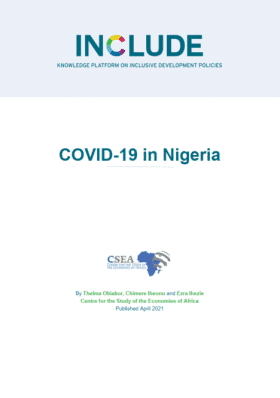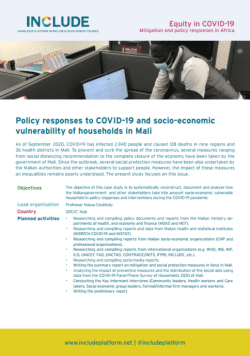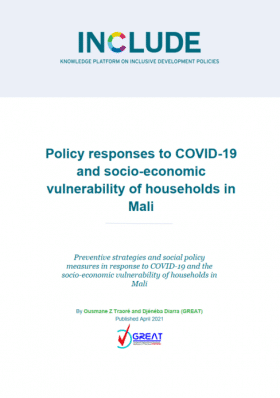
This case study aims to systematically reconstruct, document and analyse the response to the covid-19 pandemic and the inclusion of socio-economic inequalities in this response in Mali. The study combines descriptive statistics based on the COVID-19 Panel’s 2020 Household Telephone Survey data and content analysis of semi-structured interviews with key informants. The results highlight a series of preventive measures adopted by the Malian government in order to slow the spread of the pandemic as well as socio-economic measures (direct cash transfer, free food, other in-kind transfers) to support households affected by the crisis. However, a thorough diagnosis of the situation shows that vulnerable households, particularly poor, rural and female-headed households, which are the most affected by COVID-19, have benefited less from government support. Also with regard to business support, economic support measures (tax rebates, guarantee funds, domestic debt cancellation) have benefited formal businesses more than informal ones. This situation will tend to widen the already huge socio-economic gaps in Mali. Better targeting of government aid will be necessary to reduce the socio-economic inequalities caused by the pandemic.
